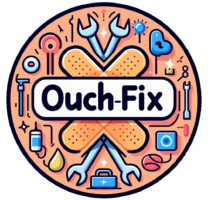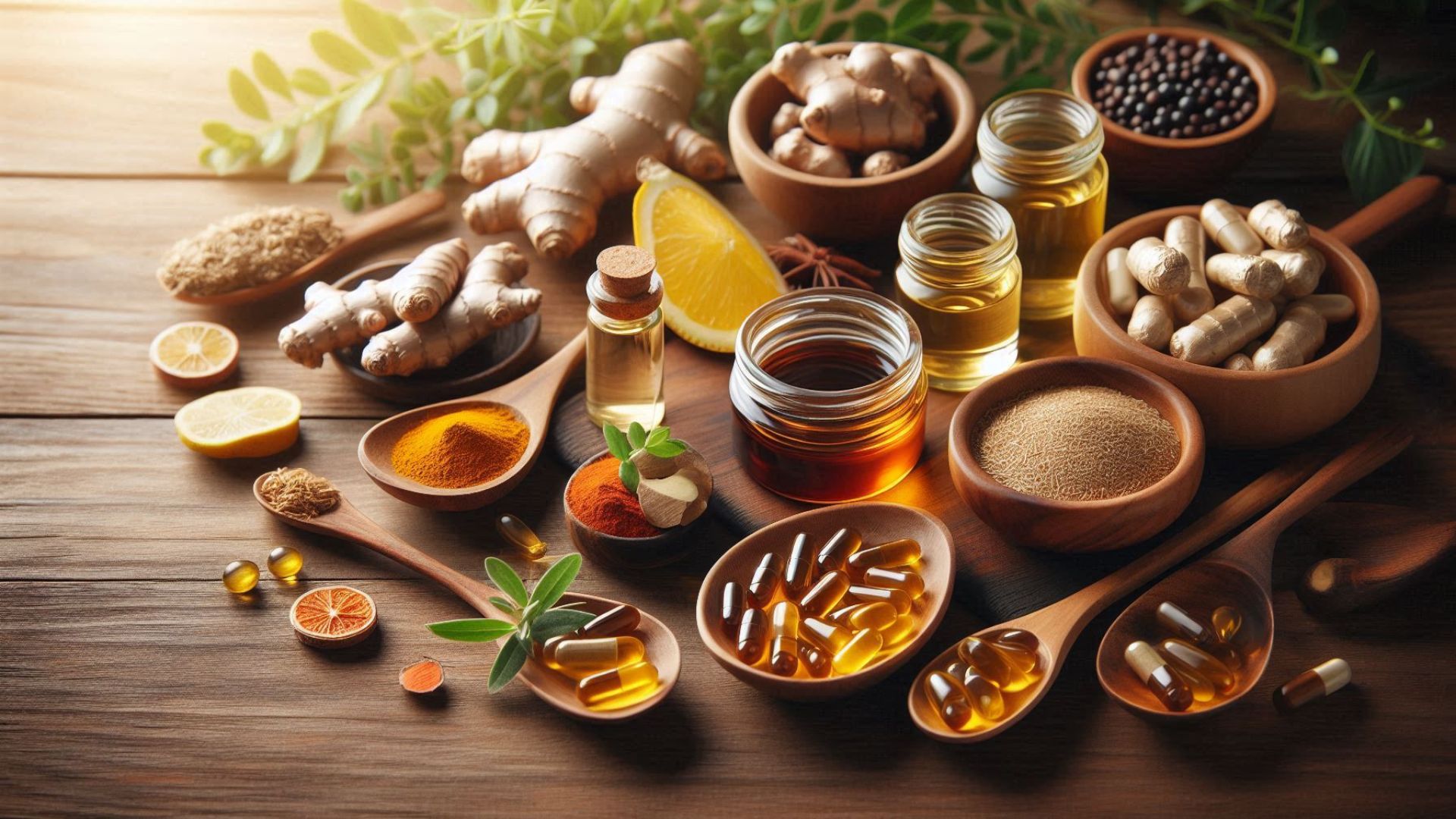Chronic pain can feel like a constant weight on your daily life. Whether it’s back pain, joint stiffness, migraines, or arthritis, the discomfort can make even simple tasks overwhelming. While conventional medications are often the first line of defense, many people are turning to natural supplements to help manage pain in a safer, more holistic way.
But here’s the truth: not every supplement works the same for everyone, and some may interact with prescription drugs. That’s why understanding your options—and working with your doctor—is key.
In this guide, we’ll walk through some of the most researched and promising natural supplements for pain relief, organized by condition. We’ll also look at lifestyle considerations, expert tips, and common questions to help you make informed decisions.
Step One: Talk to Your Doctor
Before trying any supplement, consult your healthcare provider. Pain can stem from different underlying causes—musculoskeletal issues, nerve damage, autoimmune disorders, or even nutritional deficiencies.

When you meet your doctor, share:
- The type of pain (sharp, dull, throbbing, burning)
- Duration (how long you’ve been experiencing it)
- Triggers (what makes it better or worse)
- Other medications you’re taking
This ensures that supplements won’t interact with your prescriptions and that more serious conditions (like infections or fractures) aren’t overlooked
Not all supplements work the same way for every type of pain, and some can interact with medications you’re already taking. Always check with your doctor before trying anything new.
Supplements for Back and Joint Pain
Turmeric
Turmeric, the golden spice often found in curries, contains curcumin, a compound with powerful anti-inflammatory and antioxidant effects.
- How it helps: Curcumin reduces inflammation linked to arthritis and back pain.
- How to take: 500–2000 mg of turmeric extract daily (standardized to 95% curcuminoids). Pair with black pepper (piperine) for better absorption.
- Example: A study published in the Journal of Medicinal Food found turmeric extract reduced arthritis pain comparably to ibuprofen.
👉 Pro tip: Cooking with turmeric is healthy, but supplements provide a more concentrated dose.
Devil’s Claw Root
Native to southern Africa, this herb is rich in harpagoside, a compound that may ease lower back pain and arthritis.
- Dosage: 30–100 mg of harpagoside daily.
- Caution: May cause mild stomach upset—start with a smaller dose.
Capsaicin (from Chili Peppers)
Capsaicin, the compound that gives chili peppers their heat, can block pain signals in nerves.
- Note: It may cause a burning sensation at first, but this usually fades.
- Best form: Topical creams (0.025%–0.075%) applied 3–4 times a day.
- Uses: Helpful for arthritis, muscle pain, and even diabetic neuropathy.
Comfrey
This herbal extract is often applied topically for upper and lower back pain.
- Warning: Never ingest comfrey—it can damage the liver.
- How to use: Apply cream to affected areas up to 3 times daily.
Glucosamine and Chondroitin
These compounds naturally support cartilage health and may reduce joint pain.
- Patience needed: Benefits may take 2–4 months to appear.
- Effectiveness: Research is mixed—some patients report significant relief, while others notice little change.

Also Read: How does Sleep Affect Recovery from Physical Injuries?
Supplements for Headaches

White Willow Bark
- Often called nature’s aspirin, it contains salicin, which the body converts to salicylic acid.
- Note: Avoid in children under 18 due to risk of Reye’s syndrome.
- Dosage: 120–240 mg daily.
Boswellia (Indian Frankincense)
Extracted from tree resin, boswellia reduces inflammation and may ease cluster headaches.
- Form: Available in capsules or tablets.
Caffeine
When combined with pain relievers like acetaminophen or ibuprofen, caffeine can increase effectiveness by up to 40%.
- Caution: Overuse may trigger rebound headaches.
Feverfew and Butterbur
These herbal remedies have been traditionally used for migraine prevention.
- Tip: Only use butterbur supplements labeled “PA-free” (pyrrolizidine alkaloid–free), as unsafe versions may harm the liver.
- Evidence: Some studies show reduced migraine frequency, but more research is needed.
Other Natural Remedies for Pain

Omega-3 Fatty Acids
Omega-3s found in fish oil, flaxseed, and walnuts help lower inflammation.
- Supplement dose: Up to 3 grams daily of fish oil.
- Best sources: Salmon, sardines, chia seeds.
Probiotics
Gut health influences inflammation and immune response. Probiotics may help with conditions like irritable bowel syndrome and systemic pain disorders.
- Supplements: Look for multi-strain formulas with at least 10 billion CFUs.
- Sources: Yogurt with live cultures, kefir, sauerkraut, kimchi.

Also Read: What is the Best Over‑the‑Counter Pain Relief Cream for Joint Pain?
Supplements for Arthritis Pain

SAM-e
A compound naturally produced in the body, SAM-e supports joint health and mood regulation.
- Studies: Some research suggests SAM-e is as effective as NSAIDs (like ibuprofen) for arthritis pain.
- Dosage: 200 mg three times a day.
Glucosamine and Chondroitin
As discussed earlier, these are common go-to supplements for osteoarthritis.
Boswellia
Anti-inflammatory and particularly effective for osteoarthritis and rheumatoid arthritis.
Capsaicin Cream
Topical application can desensitize pain receptors and reduce arthritis-related pain.
Other Options
- Avocado-soybean oil extract – may slow cartilage breakdown.
- Cat’s claw – anti-inflammatory herb.
- Ginger – shown to reduce arthritis-related pain.
- GLA (Gamma-linolenic acid) – found in evening primrose oil and borage oil.
Supplements for Fibromyalgia

Vitamin D
Low levels of vitamin D are linked to increased muscle pain and fatigue.
- Tip: Ask your doctor for a blood test. Supplementation may significantly ease fibromyalgia discomfort.

Also Read: What do User Reviews Say About Popular Pain Relief Balms?
Final Thoughts
Natural supplements offer promising support for chronic pain, but they aren’t one-size-fits-all. Effectiveness depends on the type of pain, dosage, and your unique health profile.
The best approach? Work with your doctor, track your symptoms, and combine supplements with healthy lifestyle changes. This way, you’ll have the best chance at long-term relief.
FAQs: Natural Supplements for Pain
Q1. Are natural supplements safer than pain medications?
Not always. While many have fewer side effects, some can interact with medications or cause liver/kidney strain. Always consult your doctor.
Q2. How long before I notice results from supplements?
It varies. Some (like capsaicin cream) may work within days, while others (like glucosamine) may take months.
Q3. Can I take multiple supplements together?
Yes, but do so under medical supervision to avoid harmful interactions.
Q4. What’s the best supplement for arthritis?
Glucosamine, chondroitin, SAM-e, and boswellia are among the most studied. Results vary by individual.
Q5. Do supplements replace prescription medications?
No. They should complement, not replace, medical treatment.




